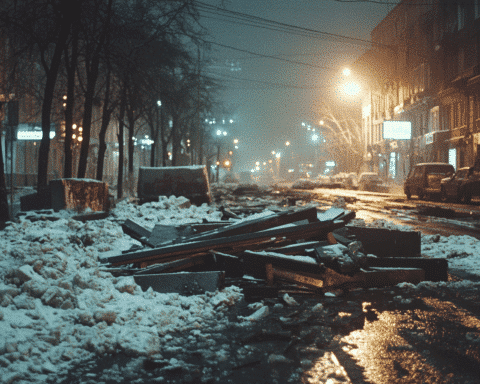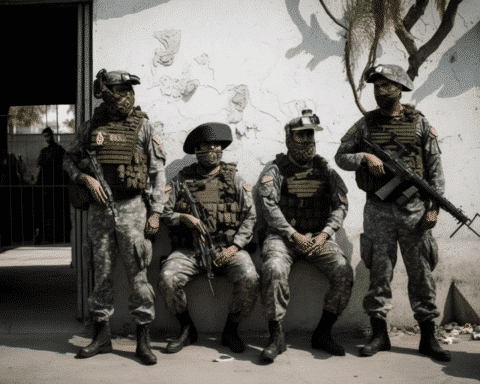Tragedy Strikes Northern Lebanon
An Israeli airstrike hit an apartment building in northern Lebanon, claiming the lives of at least 21 people, according to the Lebanese Red Cross. The target of the attack remains unclear, and the Israeli military has yet to comment. The village of Aito, located in the Christian heartland of northern Lebanon, was the site of the devastating strike, far from Hezbollah’s stronghold in the south. Rescue teams worked tirelessly to search through the rubble for survivors as ambulances waited nearby to receive the victims. The impact of the strike caused extensive damage to surrounding buildings and vehicles.
Rising Tensions After Hezbollah’s Deadly Attack
The airstrike followed a day after Hezbollah launched a drone attack on an Israeli army base, killing four 19-year-old soldiers and severely wounding seven others. This marked the deadliest Hezbollah strike since Israel’s ground invasion of Lebanon two weeks prior. The Israeli Prime Minister, Benjamin Netanyahu, visited the wounded soldiers, vowing to “continue to strike Hezbollah without compassion in every part of Lebanon, including in Beirut.”
The conflict between Hezbollah and Israel has intensified over the past year, with Hezbollah firing thousands of rockets, drones, and missiles into Israeli territory. While Israel’s defense systems have intercepted many of these attacks, over 60 Israeli civilians have been killed. Netanyahu reiterated that Israel’s campaign aims to stop these attacks and ensure the safety of displaced Israeli citizens living near the Lebanese border.
A Strike in Gaza and Civilian Casualties
On the same day, Israel also targeted Gaza, where an airstrike hit the courtyard of Al-Aqsa Martyrs Hospital in Deir al-Balah. The strike claimed four lives and ignited a fire that ravaged a tent camp for displaced civilians. According to the Israeli military, the strike aimed at militants hiding among civilians, although no concrete evidence was provided.
The fire that followed the strike left more than two dozen people with severe burns. In an alarming scene, children were among the wounded as a man was seen carrying a toddler with a bandaged head, and another child received a blood transfusion on the floor of the packed hospital. Hospital records confirmed that 40 people were wounded, with 25 suffering from severe burns.
International Response and Humanitarian Concerns
The White House expressed concerns over the strike on Al-Aqsa Martyrs Hospital, stating, “Israel has a responsibility to do more to avoid civilian casualties — and what happened here is horrifying.” As the conflict continues, Israel’s retaliatory strikes have left more than 42,000 Palestinians dead, with women and children making up more than half of these fatalities, according to Gaza’s Health Ministry.
The ongoing war, which began after Hamas attacked southern Israel on October 7, 2023, has displaced 90% of Gaza’s population. Most of the 2.3 million residents have been forced to flee multiple times, with large areas of Gaza now in ruins.
Calls for Prevention of Forced Transfer in Gaza
Israel’s order for the evacuation of 400,000 civilians from northern Gaza has raised fears of forced transfer. Human rights groups, including B’Tselem and Physicians for Human Rights-Israel, warned of Israel’s potential implementation of a surrender-or-starve strategy in northern Gaza, which would violate international law. These groups called on the global community to intervene and prevent such violations, emphasizing that forced displacement and starvation are crimes under international law.
As the conflict continues, the humanitarian toll grows, and the calls for a ceasefire become louder from international organizations and rights groups alike.
A Growing Humanitarian Crisis
The escalating conflict between Israel and Hezbollah, alongside the broader regional violence, continues to take a devastating toll on civilians. With the rising number of casualties, including those in Lebanon and Gaza, the need for a diplomatic resolution has never been more urgent. The international community must address this growing humanitarian crisis and work toward a peaceful resolution.




